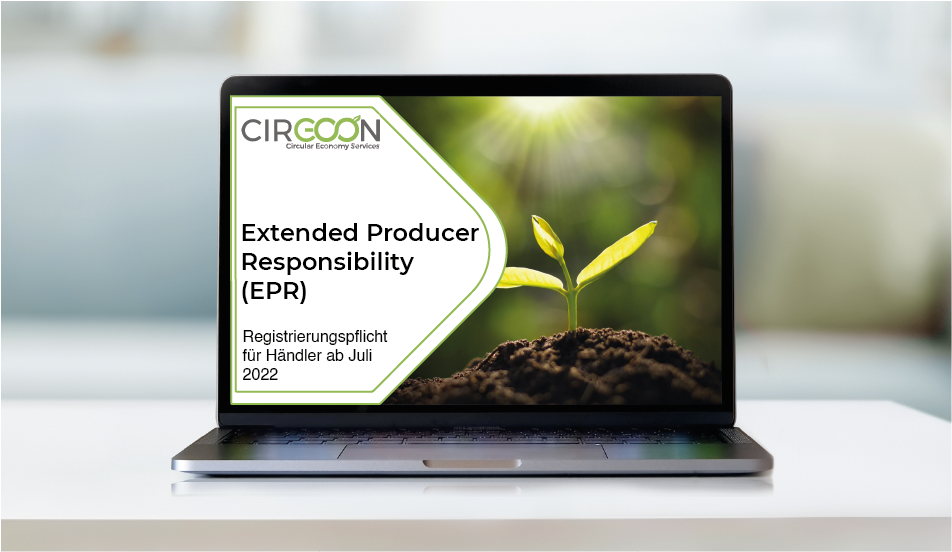In July, the EPR (Extended Producer Responsibility) will be tightened. From then on, a duty to register will be in place. That is why, as part of an online seminar, we want to help companies avoid potential
threats coming with a distribution ban and take the right measures to be a step ahead of the competition.
What is EPR?
All across Europe, the EPR is in place. It puts producers and distributors of products in the European area in charge of taking back, transport as well as disposal or recycling thereof.
The Extended Producer Responsibility (EPR) is an eco-political instrument putting producers in charge of the management of the processing of a product. In accordance with the EPR regulations, those responsible are liable to curb the environmental impact of their products along the whole product life cycle.
It applies to producers of a variety of goods, including textiles, clothing/shoes, batteries along with electronical and electric equipment and also for producers and distributors of packaging.
With the help of the EPR, the EU places these companies under the obligation to professionally collect, sort and dispose of, or rather recycle their products and packaging.
Why is there an EPR, after all?
The primary goal is a well-working circular economy. Packaging and products is not to be turned into waste and disposed of, but at least rather be reused, repared, or recycled as best as possible.
This way, issues like the growing scarcity of ressources and the incorrect handling of waste should be tackled. In this process, the principle of the perpetrator applies, meaning that companies are in charge of associated raw materials and the recycling thereof. This goes for all those marketing products and packaging.
How to implement the EPR as an enterprise?
Can the tightening of the EPR result in a distribution ban for your company? Basically, yes. Currently, companies affected by the EPR implement it by paying a commission. What is more, products not meetinhg the requirements of the EPR may not be marketed.
And, what will change from July 2022?
In July 2022, there will be amendments to the packaging’s Act duty to register, the fulfillment and the marketplaces. It appears to be the last stage of amendments to the packaging act for the time being, but the same time likely the biggest one: Es
- NEW: Producers of service and not system-relevant transport packaging, outer and sales packaging are liable too
- In the area of fulfillment responsibilities will be rearranged
- For marketplaces: Obligation to check the EPR figures will be tightened
You can learn more about the current, or rather new regulations as a result of the extension of the EPR in our online seminar. Therein, Bernd Kellerer gears your business up for the amendments coming up in July by providing tips and breaking down everything you need to know. Get the recording here for free and without registration.
The bottom line: The EPR can be an effective instrument for a well-working circular economy
To put companies more in charge of taking back and recycling, the EPR was passed in the EU. If geared up the amendments right, your company can benefit from the EPR, which presents an opportunity for a greener future.
With a partner like CIRECON by your side, you can help protect raw materials sustainably, act in compliance with law and save money. Read more on what we do here.


